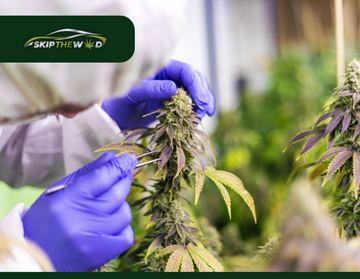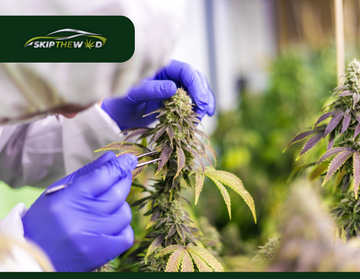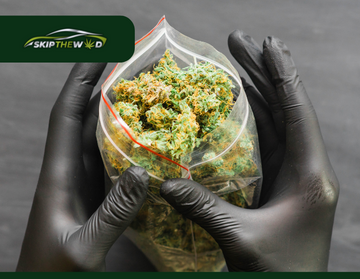The opioid crisis remains a significant public health challenge, with many individuals grappling with dependence on prescription and illicit opioids. Traditional treatments often fail to meet the needs of everyone, leading to a growing interest in alternative or supplementary therapies. Cannabis has emerged as a potential aid in managing opioid addiction, offering various benefits that might complement conventional treatments. This article delves into how cannabis could assist in opioid dependence, explores its potential advantages, and provides practical insights for its use.
Understanding Opioid Dependence
Opioid dependence involves a complex interaction between physical and psychological factors, resulting in a compelling need for opioids. Here are the core aspects of opioid dependence:
- Physical Dependence: When opioids are used over time, the body adapts to their presence, leading to tolerance and dependence. This means that higher doses are needed to achieve the same effects, and withdrawal symptoms can occur if opioid use is reduced or stopped abruptly. These withdrawal symptoms can include severe discomfort, such as nausea, muscle aches, and intense cravings.
- Psychological Dependence: Beyond physical symptoms, opioid dependence often includes a strong psychological component. Individuals may experience powerful cravings and compulsive behaviors that drive them to seek out and use opioids despite negative consequences. This psychological hold can make it challenging to quit, as opioids may become a central focus in the person’s life.
- Treatment Challenges: Traditional treatments for opioid dependence include detoxification, medication-assisted treatment (MAT) with drugs like methadone or buprenorphine, and various behavioral therapies. While these approaches are effective for many, they can be insufficient for some individuals, who may experience high relapse rates and ongoing challenges in maintaining recovery.
Cannabis as a Potential Tool in Opioid Dependence Management
Cannabis, with its array of cannabinoids, presents a potential tool for managing opioid dependence. Here’s how cannabis might be beneficial:
-
1. Reducing Opioid Use
Cannabinoids such as THC (tetrahydrocannabinol) and CBD (cannabidiol) have shown promise in reducing opioid reliance through several mechanisms:
- Alternative Pain Relief: Cannabis can provide effective pain relief, which may reduce the need for opioids. THC is known for its psychoactive effects, which can offer significant pain relief, while CBD, a non-psychoactive compound, can also aid in pain management. By alleviating pain, cannabis may allow individuals to reduce or even eliminate their use of opioid medications.
- Easing Withdrawal Symptoms: Cannabis may help ease some of the challenging withdrawal symptoms associated with opioid cessation. For example, CBD has been reported to reduce anxiety and improve sleep, which can be particularly beneficial during withdrawal. Additionally, cannabis may help manage nausea and improve appetite, which are common withdrawal symptoms.
-
2. Supporting the Recovery Process
Cannabis might also play a supportive role in the recovery process from opioid dependence:
- Emotional Support: The mood-stabilizing effects of cannabinoids can be beneficial for individuals in recovery. THC and CBD can help manage symptoms of anxiety and depression, which are frequently experienced during recovery. By improving emotional well-being, cannabis may contribute to a more stable recovery process.
- Craving Management: Some studies and anecdotal evidence suggest that cannabinoids might help reduce cravings for opioids. By mitigating cravings, cannabis can support individuals in maintaining abstinence and avoiding relapse. This potential benefit makes cannabis a valuable tool in a comprehensive treatment strategy.
-
3. Harm Reduction
Cannabis can also contribute to harm reduction strategies in opioid addiction management:
- Safer Alternative: For individuals struggling with opioid dependence, cannabis offers a less risky alternative for managing pain and overall health. Unlike opioids, cannabis does not carry the same risk of overdose, making it a safer option for those seeking to reduce their opioid use.
- Lower Overdose Risk: Cannabis use does not have the same risk of overdose as opioids. This safety profile makes cannabis an attractive option for those looking to taper off opioids or manage pain without the dangers associated with high doses of opioid medications.
Practical Considerations for Using Cannabis in Opioid Dependence Management
-
1. Choosing the Right Form
Cannabis is available in various forms, each with distinct benefits:
- Cannabis Flower: Smoking or vaporizing cannabis provides quick relief but may not be ideal for long-term use due to potential respiratory issues. Vaporizing is generally preferred over smoking for reduced health risks.
- Edibles and Tinctures: These products offer sustained effects and can be helpful for managing symptoms over longer periods. Edibles, such as gummies or capsules, provide a discreet and convenient option for daily use.
- Topicals: Cannabis-infused creams and lotions can provide localized relief for specific areas without causing psychoactive effects. This form can be useful for targeting pain or inflammation directly.
-
2. Dosage and Administration
Determining the appropriate dosage is crucial when using cannabis for opioid dependence management. Starting with a low dose of THC and gradually adjusting based on individual response is recommended. Consulting with a healthcare provider can help tailor the dosage and administration to meet specific needs and ensure safety.
-
3. Consulting Healthcare Professionals
Incorporating cannabis into an opioid dependence treatment plan should be done under the guidance of healthcare professionals. Providers can help integrate cannabis with other treatments and monitor its effects on overall recovery. This collaborative approach ensures that cannabis use complements rather than interferes with existing treatment strategies.
-
4. Legal and Safety Considerations
Adhering to local regulations regarding cannabis use is essential. Ensure that cannabis is obtained from reputable sources to guarantee quality and safety. By following legal and safety guidelines, individuals can maximize the benefits of cannabis while minimizing potential risks.
Benefits and Limitations
Benefits:
- Pain Relief: Cannabis can provide an effective alternative to opioids for managing pain.
- Symptom Relief: It may alleviate withdrawal symptoms and support emotional stability during recovery.
- Harm Reduction: Offers a safer alternative with a lower risk of overdose compared to opioids.
Limitations:
- Psychoactive Effects: THC can cause psychoactive effects that may not be suitable for everyone.
- Temporary Solution: Cannabis should be used as part of a broader treatment strategy, not as a standalone solution.
- Ongoing Research: Further research is needed to fully understand the role of cannabis in managing opioid dependence and recovery.
Conclusion
Cannabis represents a promising adjunctive therapy for managing opioid dependence. By providing pain relief, alleviating withdrawal symptoms, and supporting recovery, it offers a valuable option for those struggling with opioid addiction. While it is not a cure-all, cannabis can play a supportive role in a comprehensive treatment plan.
For those exploring cannabis as part of their opioid dependence management strategy, Skip the Weed is here to provide high-quality cannabis products tailored to your needs. From pain-relieving strains to edibles and tinctures, our selection is designed to support your journey toward recovery. Visit Skip the Weed to explore our offerings and find the products that best meet your needs. For personalized support and to place an order, contact us at 204-294-6583. Our dedicated team is here to help you discover effective solutions for a healthier path forward.









